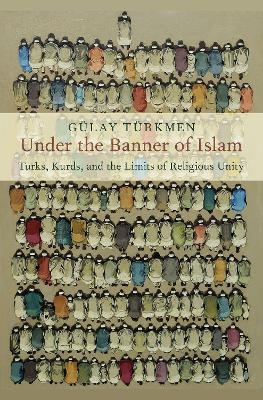
Under the Banner of Islam
Oxford University Press Inc (Verlag)
978-0-19-751181-7 (ISBN)
In search for answers to this question, in Under the Banner of Islam, Türkmen journeys into the inner circles of religious elites from different backgrounds: non-state-appointed local Kurdish meles, state-appointed Kurdish and Turkish imams, heads of religious NGOs, and members of religious orders. Blending interview data with a detailed historical analysis that goes back as far as the nineteenth century, she argues that the strength of Turkish and Kurdish nationalisms, the symbiotic relationship between Turkey's religious and political fields, the religious elites' varying conceptualizations of religious and ethnic identities, and the recent political developments in the region (particularly in Syria) all contribute to the complex role religion plays in the Kurdish conflict in Turkey.
Under the Banner of Islam is a specific story of religion, ethnicity, and nationalism in Turkey's Kurdish conflict, but it also tracks a broader narrative of how ethnic and religious identities are negotiated when resolving conflicts.
Gülay Türkmen is a sociologist and current postdoctoral fellow at the University of Goettingen. Her work examines how macro-scale historical and political developments inform questions of belonging and identity-formation in multi-cultural societies. She has published in several academic outlets including the Annual Review of Sociology, Qualitative Sociology, Sociological Quarterly, and Nations and Nationalism. She has written about developments in Turkish politics for Open Democracy and Jadaliyya.
Prologue
Introduction
"Under the banner of Islam"
"The ambivalence of the sacred": Religion and conflict resolution
The porous borders of religion and ethnicity
The shifting borders of religious and political fields
Chapter 1
"Green Kemalism": The evolving role of Islam in the Kurdish conflict
Kurdish revolts in the late Ottoman period: Against centralization?
Kurdish revolts in the early Republican period: Kurdish-Islamic Synthesis?
The secularization of the Kurdish movement: 1950-1978
Bringing Islam back in: 1990-2002
Chapter 2
"Islam as cement": The way out?
"There is only one nation and that is the nation of Abraham"
The ummah that never was
AKP's Kurdish policy: Neo-Ottoman Pan-Islamism
Chapter 3
Muslim-Kurds: The case for religio-ethnic identity
"God could have created us all the same": Religious roots of ethnicity
Kurdish Islam embodied: Civil Friday Prayers
Turkey's religious field in the 2000s: A Bourdieusian analysis
Islam as a tool of resistance
Chapter 4
"Only Turks can lead a Muslim union": The case for ethno-religious identity
Ottomanism, Islamism, Turkism: Birth pangs of Turkish nationalism
Turkish History Thesis and the Turkification of Islam
Turkey's pending dilemma: The Turkish-Islamic Synthesis
AKP's transformation: "From the Kurd's Qur'an to the Turk's flag"
Conclusion:
United in religion, divided by ethnicity?
The way forward: Whither Kurdish conflict?
Appendix: Methodology
Notes
Index
| Erscheinungsdatum | 08.02.2021 |
|---|---|
| Reihe/Serie | Religion and Global Politics |
| Verlagsort | New York |
| Sprache | englisch |
| Maße | 239 x 155 mm |
| Gewicht | 431 g |
| Themenwelt | Geisteswissenschaften ► Religion / Theologie ► Islam |
| Sozialwissenschaften ► Politik / Verwaltung ► Staat / Verwaltung | |
| ISBN-10 | 0-19-751181-3 / 0197511813 |
| ISBN-13 | 978-0-19-751181-7 / 9780197511817 |
| Zustand | Neuware |
| Haben Sie eine Frage zum Produkt? |
aus dem Bereich


